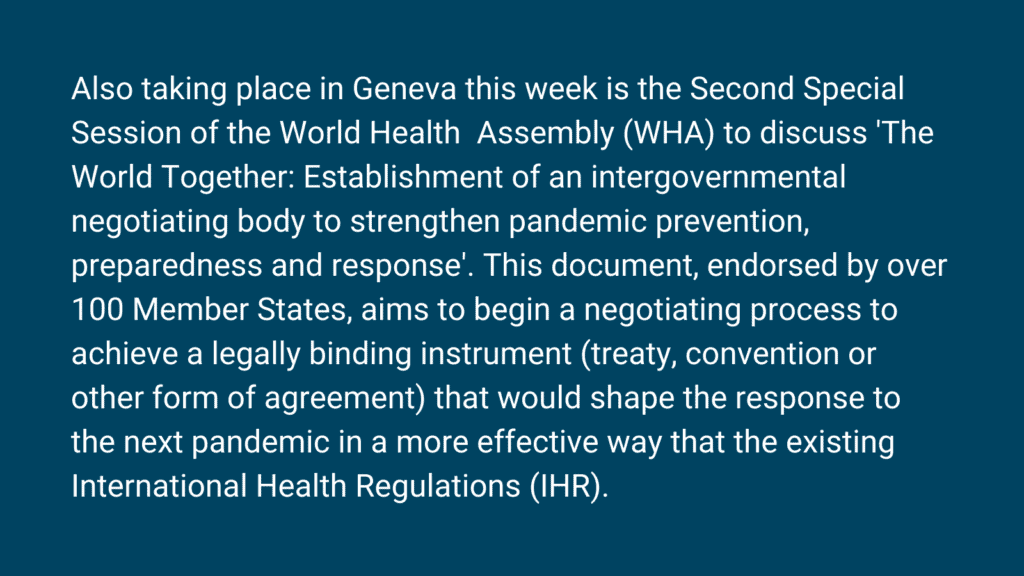We were all set to go. Flights and hotels booked, lanyards packed, facemasks at the ready. Then came the announcement from the Director-General (DG) late on Friday night that the World Trade Organization (WTO) 12th Ministerial Conference (MC12), due to begin on Tuesday 30 November, was postponed because of the identification of a new variant of SARS-CoV-2, which would later be named Omicron.
The importance of MC12 for pandemic response and the ongoing discussions over a waiver of intellectual property rights on COVID-19 related vaccines, therapeutics and diagnostics, as well as other critical trade dossiers, cannot be overstated. Not least because the newly minted WTO DG had publicly committed to delivering a solution on the different files by MC12. But given the impact unilateral travel restrictions imposed by the European Union (EU), Switzerland and other countries was likely to have on travel from southern African countries, including for MC12 delegates, this was the only reasonable response.
It has now been over a year since India and South Africa put the TRIPS waiver proposal on the table. In that time, it has received the backing of over 100 Member States, with 63 formally co-sponsoring the proposal, mainly from the Global South, but others, including the US (albeit only for patent on vaccines) have also supported the proposal. Sadly, progress towards agreeing the TRIPS waiver, that would allow for the much needed the scale-up of manufacturing of the medical technologies essential to ending this pandemic, has been thwarted by a small group of rich countries and blocs, chiefly the EU, United Kingdom, Switzerland, and Japan.
While there are a number of other initiatives to accelerate the development, manufacturing and/or supply of vaccines and other technologies, including the COVAX facility and the World Health Organization’s COVID-19 Technology Access Pool (C-TAP), neither have yet gained traction. In the case of C-TAP, the pharmaceutical industry has failed to engage and share much-needed knowledge and technology to licence and manufacture at lower costs. Encouragingly, last week saw the first product ever to be licensed to C-TAP—a serological test for COVID-19 developed by Spain’s public research institute—an example of public return on public investment in action. COVAX, in the meantime, has to date delivered a fraction of its promised vaccines to low- and middle-income countries, largely because of vaccine hoarding by countries in the Global North and failure of the pharmaceutical industry to honor scheduled deliveries.
Against this backdrop, a TRIPS waiver has the potential to have the impact that is needed right now to bring closer the end of this pandemic. Countries in the Global South have been left behind in the race to vaccinate, and to continue to be denied the ability to catch-up and protect their populations (at the very least front-line health workers and the most vulnerable) is nothing short of immoral.
If nothing else, the postponement of MC12 was a devastating reminder of exactly why this is so important. Experts have been warning for months of the danger of allowing the virus to spread unabated, with new variants likely to appear, just as has happened in the last few days. A truly global vaccination campaign, coupled with social measures recommended by the WHO, are essential to slowing the spread of the virus and, ultimately, ending the pandemic.
While we’re not in Geneva to push for the waiver as we had hoped, in the coming days and weeks we and our civil society allies will continue to urge the EU and others to stop blocking, stand on the right side of history, and put an end to the suffering caused by COVID-19, for everyone, everywhere.
